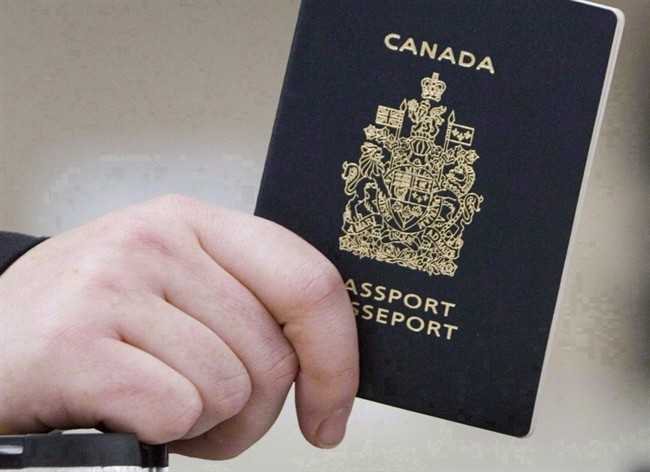Starting August 31, Canadians will be able to choose to have a gender-unspecified “X” designation on their passport, instead of just “M” for male or “F” for female.

Although the gender-neutral passport is welcomed by many, people choosing to travel with an “X” under their name might face difficulty when attempting to enter certain countries, according to an immigration lawyer.
Adrienne Smith, a Toronto immigration lawyer who specializes in transgender legal issues, says she’s “thrilled” about the option to have a gender-neutral passport.
“I think the benefit of the X designation is that it really shows that people should have choice in identifying their gender. Some applicants won’t identify as male or female, they identify as nonbinary, or they simply don’t want to flag their gender in their passport,” she said.
But that doesn’t mean that other countries will accept their choice. “Any foreign country has the right to refuse entry to any visitor,” she said.
“I’d be concerned if I had an X on my passport that it would leave me open to some kind of discrimination.”
While the International Civil Aviation Organization, which sets guidelines on international passports, does permit an “X” sex designation, it’s up to individual countries to decide whether to let someone in.

Get daily National news
“I’m really worried that in countries like Uganda and Jamaica, where being LGBT is illegal and there’s laws on the books that prosecute people for identifying as trans, that this could leave people open to arbitrary detention, it could leave them open to scrutiny at airports, degrading treatment,” said Smith. “There’s a whole host of actions that foreign law enforcement could take, I think, if you have an X on your passport.”
Aaron Devor, chair in transgender studies at the University of Victoria, also has mixed feelings about the new passport option.
“We have a lot of people who are travelling where their official sex designation according to their birth certificate and so on doesn’t match their appearance. So that immediately creates problems at borders because people are looking to see a concordance between what the passport says, what the picture says, what the person’s appearance says and what the sex designation is.”
Transgender people might be denied admission, harassed or subjected to “humiliating and unnecessary physical searches of their bodies,” he said.
Having an “X” on the passport could be an improvement because it gives people an opportunity to explain any differences, he said. But it could also flag individuals to border security. “The X could alert officials who are not accustomed to it and create a problem that might not have happened.”
Smith would be particularly cautious about attempting to enter West African countries or places like Jamaica, which has a high murder incidence for transgender people, on an “X” passport.
“I think people need to understand that if they’re going to be using a passport that designates them as X for their gender that at foreign airports, that’s foreign law enforcement and they’re enforcing the laws of the country that they’re entering.” Abroad, you might not have the same kinds of rights or legal protection as you do in Canada, she said.
“There’s more countries where I would be concerned about entering rather than countries I would feel safe entering.”
Australia, one of the few other countries to offer an “X” designation on a passport, cautions travellers about using it.
“Sex- and gender-diverse passport holders should be aware that while Australian travel documents are issued in accordance with international standards, those travelling on a passport showing ‘X’ in the sex field may encounter difficulties when crossing international borders due to their infrequent use,” reads a government website. “The Department of Foreign Affairs and Trade cannot guarantee that a passport showing ‘X’ in the sex field will be accepted for entry or transit by another country.”
Both Smith and Devor think that the sex designation should be removed from passports altogether.
“Gender isn’t necessary for security purposes to be listed on an identity document. We now have biometric passports, we have fingerprints, we have other much more secure forms of establishing identity,” said Smith.
Immigration, Refugees and Citizenship Canada did not return a request for comment by deadline.


Comments
Want to discuss? Please read our Commenting Policy first.